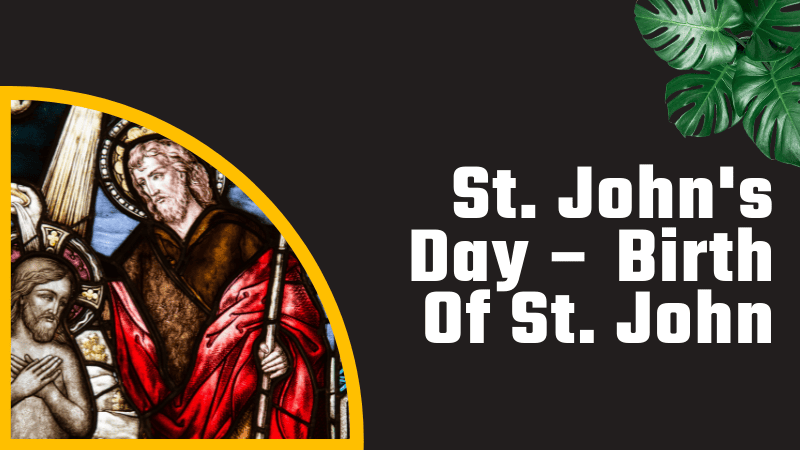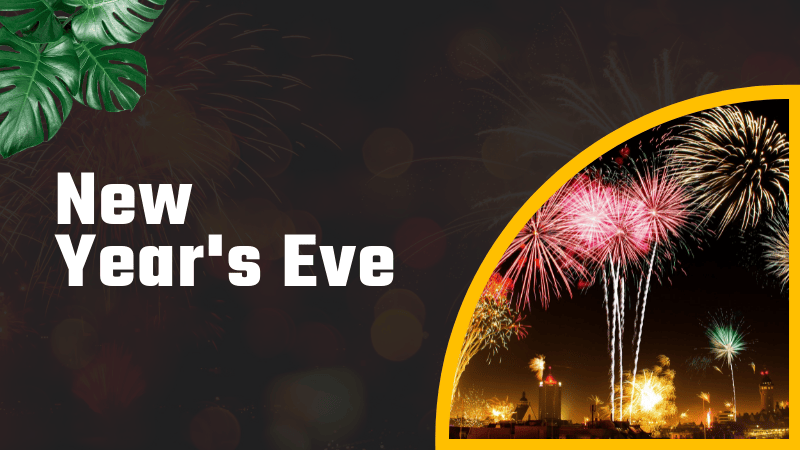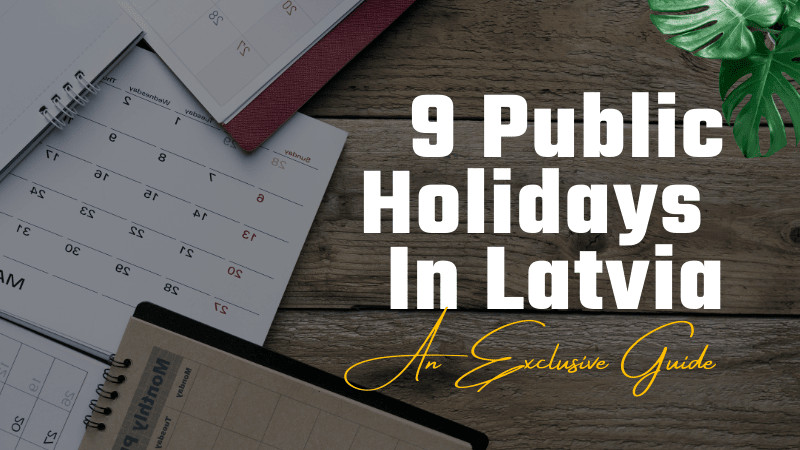What are the officially recognized public holidays in Latvia? Let’s go through them all to understand the importance of Latvia’s religious and national days.
Since its independence, the Republic of Latvia has become one of the Baltic states. Latvians celebrate religious and national holidays all around the country. Today, we’re going to take a closer look.
Sidenote: For a comprehensive and affordable language course, learn the Latvian language with Ling App.
Latvia Public Holidays – The Most Significant Public Holidays In Latvia
1. New Year’s Day – First Day Of The Year
In the Gregorian calendar, New Year’s Day is the first day of the year. It occurs exactly one week after Christmas Day. Except for Israel, all countries that use the Gregorian calendar observe New Year’s Day as a public holiday.
Latvians celebrate it on January 1. Expect to see big street parties in the capital Riga. In the past, it was also common to see many tourists, particularly from England, where low-cost flights have transformed Riga into a party destination.
2. Good Friday – Remeberance Of Jesus Christ’s Execution
Good Friday is a national holiday in Latvia. The general public has the day off, and most schools and businesses are closed. It changes every year, but in 2022 will take place on Friday, April 15.
It marks the Christian Bible’s narrative of Jesus Christ’s passion, crucifixion, and death. Arguably, this holiday is the most important date in the Christian calendar.
3. Easter Monday – Celebrating Jesus Resurrection
Easter is a Christian holiday that celebrates Jesus’ resurrection following his execution. It is the day after Easter Sunday, celebrated in 2022 on April 17. After Easter Sunday, in Latvia, Easter Monday comes, which is also a national holiday.
4. Labour Day – Honouring The Labor Movement
Labor Day honors the labor movement’s efforts and accomplishments. Approximately 80 nations throughout the world celebrate Labor day. The celebration takes place on May 1.
5. Midsummer’s Eve – Celebrating The Summer Solstice
Midsummer’s Eve, also known as Jāņi in Latvia, celebrates the summer solstice and the year’s shortest night. Another Latvian public holiday is known as Ligo ‘Festival’ on June 23.
6. St. John’s Day – Birth Of St. John

In Latvia, St. John’s Day honors the birth of St. John the Baptist. People honor the birthday of only two saints: St. John and the Virgin Mary. It takes place a day after the Midsummer’s Day festival. June 24
7. National Day – Independence Day
This day is also known as Restoration of Independence Day and is referred to as ‘Latvias Republikas Neatkarbas atjaunoanas diena’ in Latvian. The celebration was from German and Russian occupation on November 18, 1918, following the end of World War I.
Latvia was to see itself under occupation again during World War 2. The country was invaded again by Soviet forces on June 17, 1940, and became part of the USSR.
On August 21, 1991, the Baltic republics gained full independence from Soviet Russia, as did the other Baltic countries. According to the Latvian Institute, the proclamation of the Republic of Latvia happened on May 4, 1990.
It is important to note that the official independence day is from the German occupation in 1918, and not any subsequent invasions. On Latvia’s National Day, November 18, several joyful events occur across the country. It includes a national television address to the people by the President.
8. Christmas – Celebrating The Birth Of Jesus
Christmas Day is a Christian holiday that celebrates the birth of Jesus. In Latvian, December 25 is a national holiday. However, if December 25 falls on a weekend, a neighboring weekday will be the second day of Christmas.
The significance of Christmas has been lost on many people who now largely see it as a consumer holiday. In fact, many Christians are aggrieved at the fact that some people now say ‘Merry Xmas’ as opposed to ‘Merry Christmas.’
Christmas is a highly symbolic event in Northern Europe. It takes place when winter is at its darkest, which is typically the toughest time of the year for people living in small farming and fishing communities. Cutting down an evergreen tree and lighting it with a star is in reference to being hopeful even when things are at their darkest.
9. New Year’s Eve – Celebrating Gregorian Calendar’s Last Day

New Year’s Eve is celebrated on December 31–the Gregorian Calendar’s last day of the year. There are fireworks and people often drink long into the night. So, expect to see bars open much later than usual. The psychological significance of New Year is interesting. It’s an opportunity to grow and change, leaving previous bad habits in the past.
Learn Latvian With Ling App
As you know, language learning is a time-consuming process. Simya Solution’s Ling App can assist you in making the best use of your time. Ling App is a language learning portal that offers free Latvian language classes, as well as instruction in another 60+ languages.
You do not need to open various pages to learn a new language; a single click on the website of Ling will help you learn the Latvian language. It delivers engaging learning courses and in-app games that will help you learn quickly.
Also, learn more about Latvian by reading articles like “Latvian words and phrases” and “Basic greetings in Latvian.”
We hope your enjoyed reading this article. A public holiday is a great time to plan a trip because you will see locals at their most relaxed!
See you





















